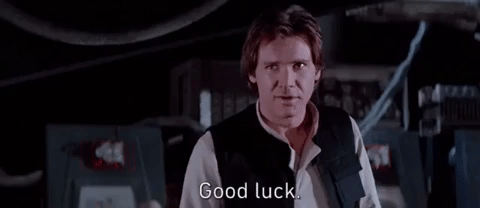
Wednesday,September 25
What Are We Doing Today?
-
Today's Goals
-
Warm Up
-
Reading Discussion
-
Homework

Today's Goals
Learning Outcomes
-
TW 1: Integrate different viewpoints as a member of a team.
-
PR 1: Evaluate choices and actions, and relate consequences to decision making.
Habits of Mind
-
Metacognition is fostered when writers are encouraged to connect choices they have made in texts to audiences and purposes for which texts are intended.
-
Responsibility is fostered when writers are encouraged to act on the understanding that learning is shared among the writer and others—students, instructors, and the institution, as well as those engaged in the questions and/or fields in which the writer is interested.
Key Terms
-
Genre and genre conventions
-
Composing Processes: planning, researching, drafting, sharing and responding, revising, editing, publishing, reflecting
Warm Up
Let's create a GSD list!
Reading Discussion
Readings:
-
Naming What We Know Threshold Concept 1.1 "Writing is a Knowledge Making Activity"
-
Naming What We Know Threshold Concept 3.0 "Writing Enacts and Creates Identities and Ideologies
-
Framework for Information Literacy "Authority is Constructed and Contextual
Group A & B: NWWK TC 3.0 "Writing Enacts and Creates Identities and Ideologies
-
"An ideology is a system of ideas and beliefs that together constitute a comprehensive world. We make sense of the world around us through the ideologies to which we have been exposed and conditioned. Ideologies are both formed and sustained by a variety of factors, including religions, economic systems, cultural myths, languages, and systems of law and schooling...Writing is always ideological because discourses and instances of language use do not exist independently from cultures and their ideologies...Writers are not separate from their writing and they don't just quickly and seamlessly adapt to new situations."
-
Read (the statement above)
-
Develop Discussion Questions
-
Consider taking what you don't understand and form that into a question that the group can use for discussion
-
Consider taking what you think you understand and form that into a question to receive confirmation or disconfirmation from the group
-
Consider taking what you understand and develop questions that will help you apply your understanding to your own experiences (Moving from abstract theory to concrete application)
-
-
Write Them Down
-
Discuss
-
Form an Interpretation
-
Confirm W/ Professor Flores, or Another Group
-
-
Provide Examples
-
Group C: FIL "Authority is Constructed and Contextual
-
"Information resources reflect their creators’ expertise and credibility, and are evaluated based on the information need and the context in which the information will be used. Authority is constructed in that various communities may recognize different types of authority. It is contextual in that the information need may help to determine the level of authority required."
-
Read (the statement above)
-
You may want to examine the knowledge practices and dispositions to get a greater handle on this concept.
-
-
Develop Discussion Questions
-
Consider taking what you don't understand and form that into a question that the group can use for discussion
-
Consider taking what you think you understand and form that into a question to receive confirmation or dis-confirmation from the group
-
Consider taking what you understand and develop questions that will help you apply your understanding to your own experiences (Moving from abstract theory to concrete application)
-
-
Write Them Down
-
Discuss
-
Form an Interpretation
-
Confirm W/ Professor Flores, or Another Group
-
-
Provide Examples
-
Group D&E: NWWK TC 1.1 "Writing is a Knowledge Making Activity"
-
"Writing is often defined by what it is: a text, a product; less visible is what it can do: generate new thinking...[by] mulling over a problem, thinking with others, and exploring new ideas or bringing disparate ideas together. Individually or in a richly interactive environment, In the classroom or workplace or at home, writers use writing to generate knowledge that they didn't have before. Understanding and identifying how writing is in itself an act of thinking can help people more intentionally recognize and engage with writing as a creative activity, inextricably linked to thought. We don't simply think first and then write we write to think."
-
Read (the statement above)
-
Develop Discussion Questions
-
Consider taking what you don't understand and form that into a question that the group can use for discussion
-
Consider taking what you think you understand and form that into a question to receive confirmation or disconfirmation from the group
-
Consider taking what you understand and develop questions that will help you apply your understanding to your own experiences (Moving from abstract theory to concrete application)
-
-
Write Them Down
-
Discuss
-
Form an Interpretation
-
Confirm W/ Professor Flores, or Another Group
-
-
Provide Examples
-
Homework
A) Read (for Wednesday 10.9)
-
Naming What We Know Threshold Concept 4.0 "All Writers Have More to Learn"
-
Naming What We Know Threshold Concept 4.2 "Failure Can Be an Important"
B) Looking Ahead:
-
Reading Response #3 is due this Sunday (9.29) by midnight.
-
Discovery Log #3 is due this Sunday (9.29) by midnight.
-
Portfolio Practice #3 due this Sunday (9.29) by midnight.
-
Second Draft of Connecting the Past and the Present (due on 9.30).
C) Need help? Come see me!
I have both Writing Center and Student Hour times we can meet. Let me know if you want to come by or how to make an appointment for the Writing Center!
